Türkiye expands naval capabilities amid rising global maritime tensions
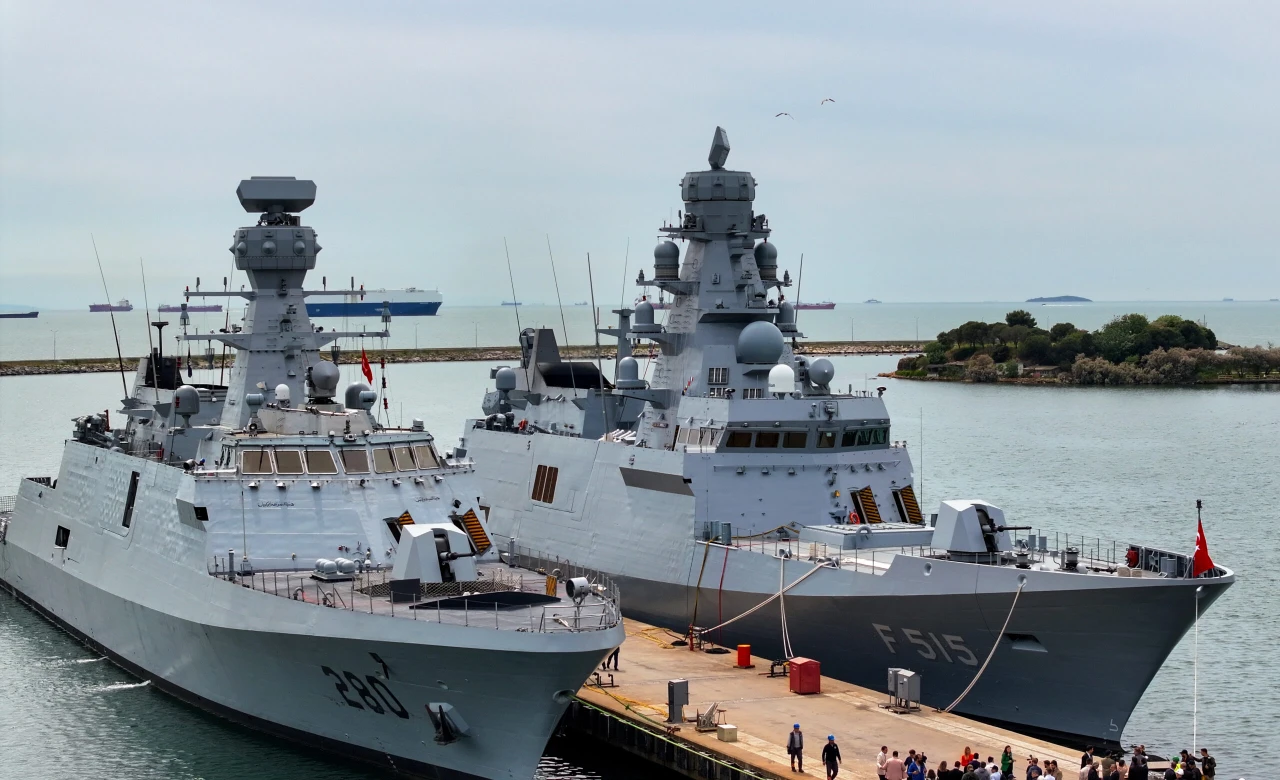 PNS BABUR (280), the first corvette under the Pakistan MILGEM Project (L) and TCG Istanbul (F-515), Türkiye's first national frigate (R), accessed on January 24, 2025. (AA Photo)
PNS BABUR (280), the first corvette under the Pakistan MILGEM Project (L) and TCG Istanbul (F-515), Türkiye's first national frigate (R), accessed on January 24, 2025. (AA Photo)
This month, Türkiye launched two new frigates, marking a significant milestone in its naval expansion.
The 3,000-ton vessels, built at Istanbul-based TAIS Shipyards under a contract with state-owned STM, are equipped with advanced weaponry and electronic warfare systems developed by firms such as Roketsan and Aselsan.
“These frigates will represent our nation’s power and determination in the world’s seas,” said Haluk Gorgun, head of the Presidency of Defense Industries, during the launch ceremony.
The effort is part of Türkiye’s goal to establish a stronger naval presence in the Mediterranean, Aegean, and Black Seas while projecting power beyond its immediate region.
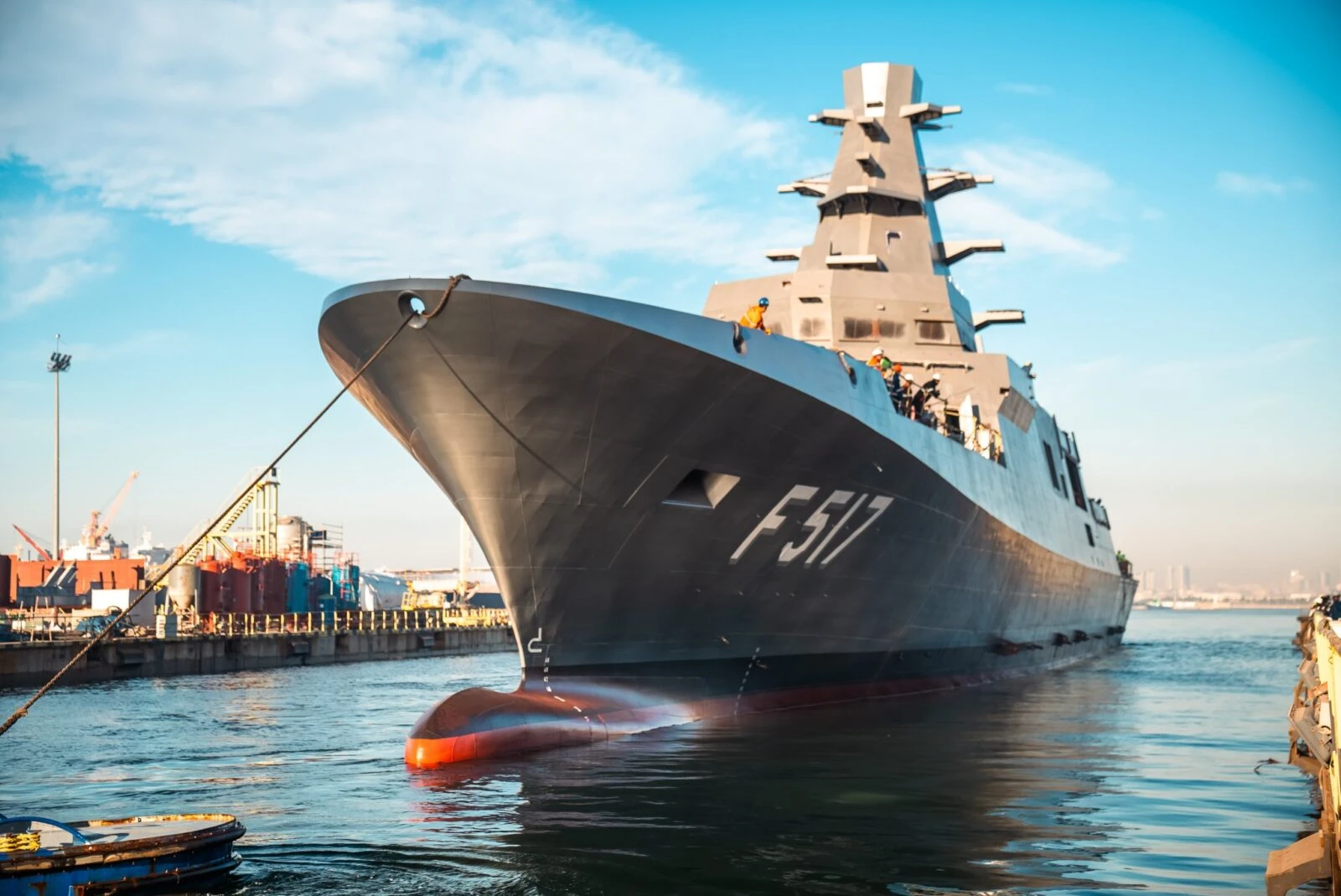
Boosting domestic defense industry and self-reliance
Türkiye’s naval expansion reflects its broader strategy to reduce dependence on foreign defense suppliers.
Over the past two decades, local components have grown to account for 75%-80% of the navy’s inputs, a sharp increase from its earlier reliance on U.S. and NATO-supplied equipment.
“While some critical projects, like submarines, still rely on foreign partnerships, there is an increasing focus on self-reliance,” said Sine Ozkarasahin, a non-resident associate fellow at the NATO Defense College speaking to Bloomberg.
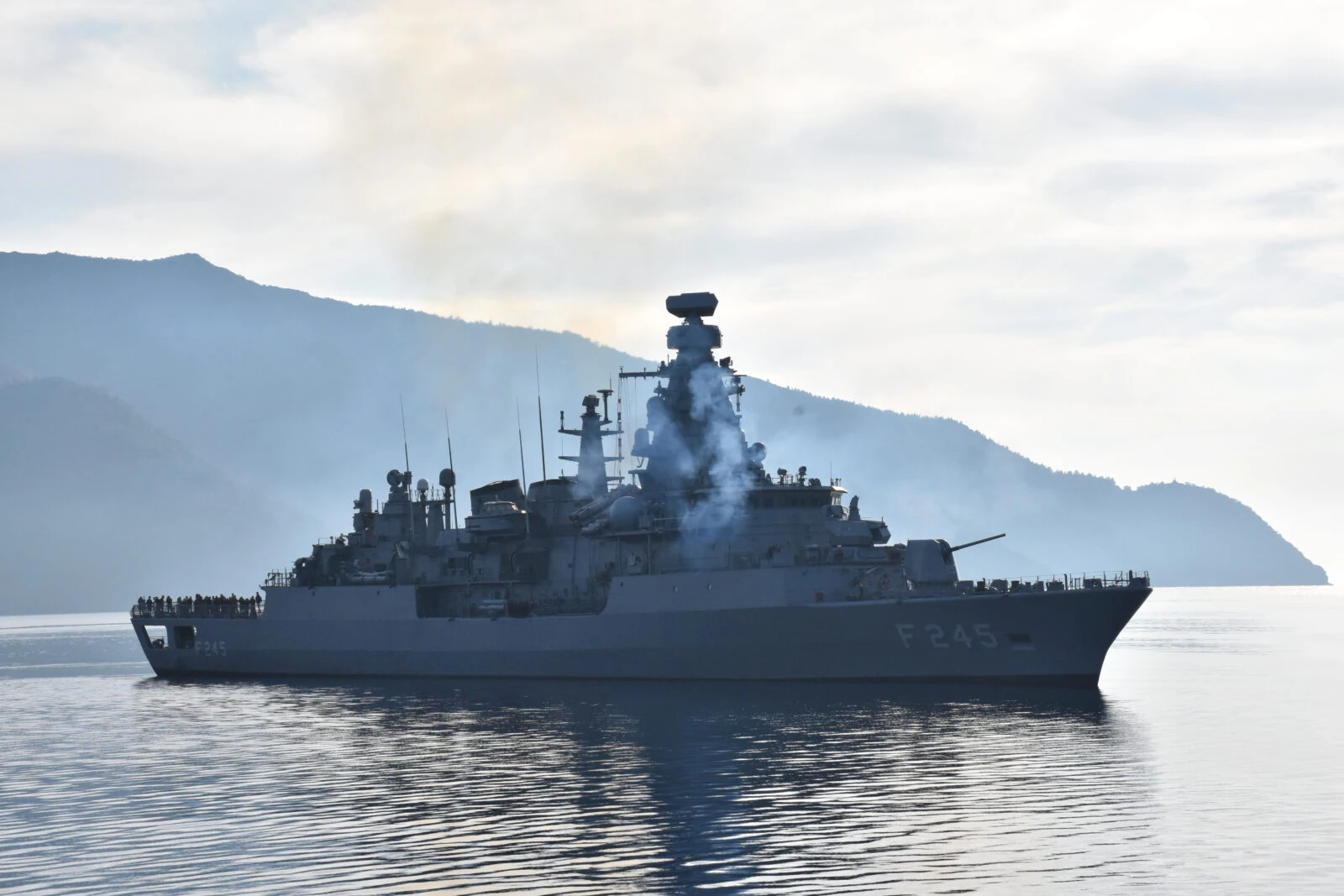
Strategic maritime ambitions of Türkiye
Türkiye’s growing naval capabilities are rooted in its “Blue Homeland” doctrine, first articulated in 2006 by Turkish naval officers.
Greece and Greek Cyprus see this strategy as a threat, due to this it created disputes with nations over territorial waters and undersea energy resources in the Aegean and Eastern Mediterranean.
Despite tensions easing since a near-conflict in 2020, both Türkiye and Greece continue to assert competing claims over exclusive economic zones.
Meanwhile, Türkiye has sought to strengthen its position through agreements like the 2019 maritime boundary deal with Libya and plans for similar accords with Syria.
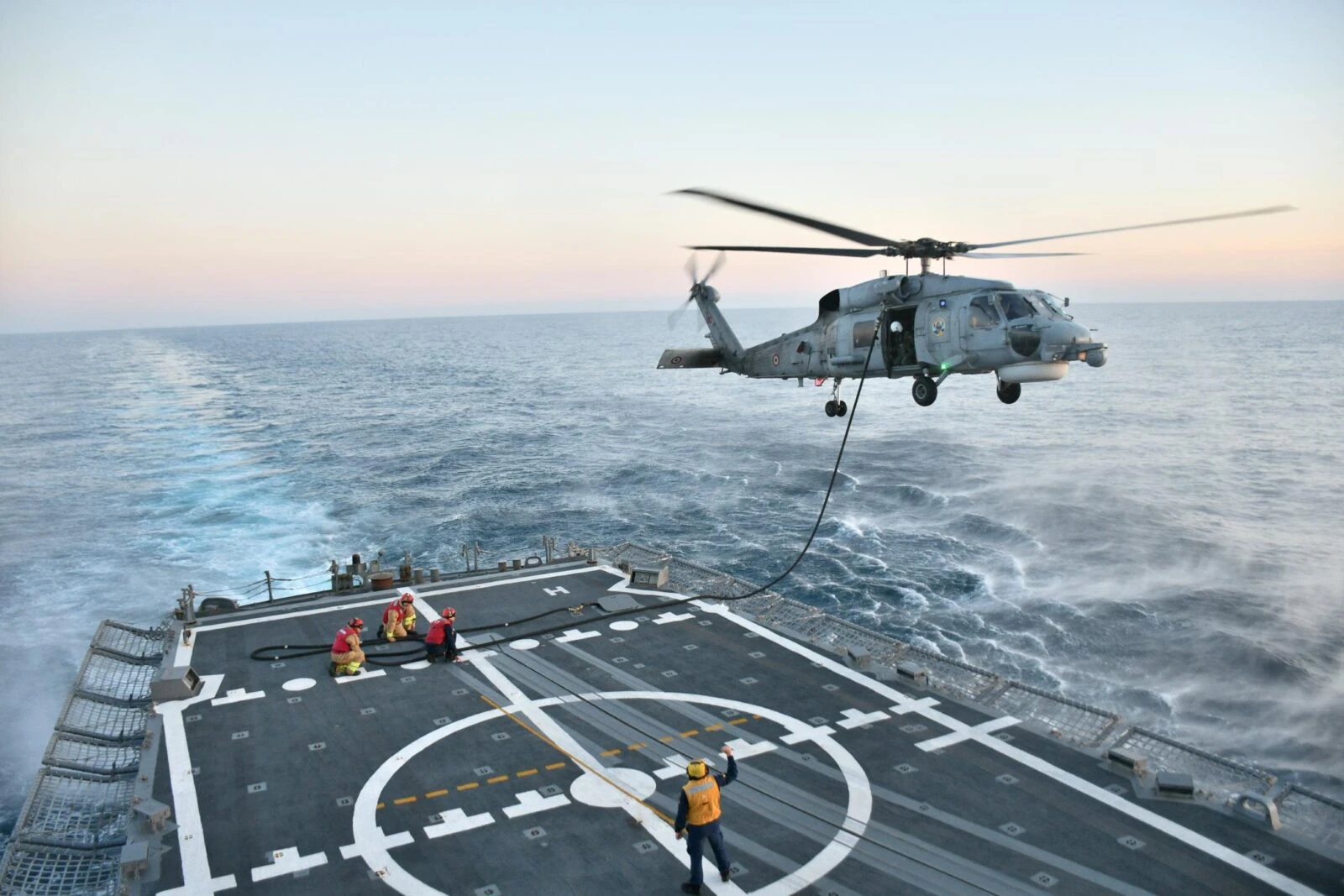
Ankara to expand global presence
Türkiye’s naval ambitions extend beyond its immediate neighborhood. The navy recently escorted a Turkish drillship to Somalia, where Türkiye maintains its largest overseas military base.
The mission aims to explore hydrocarbon resources to fuel Türkiye’s growing economy, which aspires to reach $1 trillion.
Türkiye’s defense spending reflects these goals, with a record allocation of ₺1.6 trillion ($45.1 billion) in 2025, up 11% from the previous year.
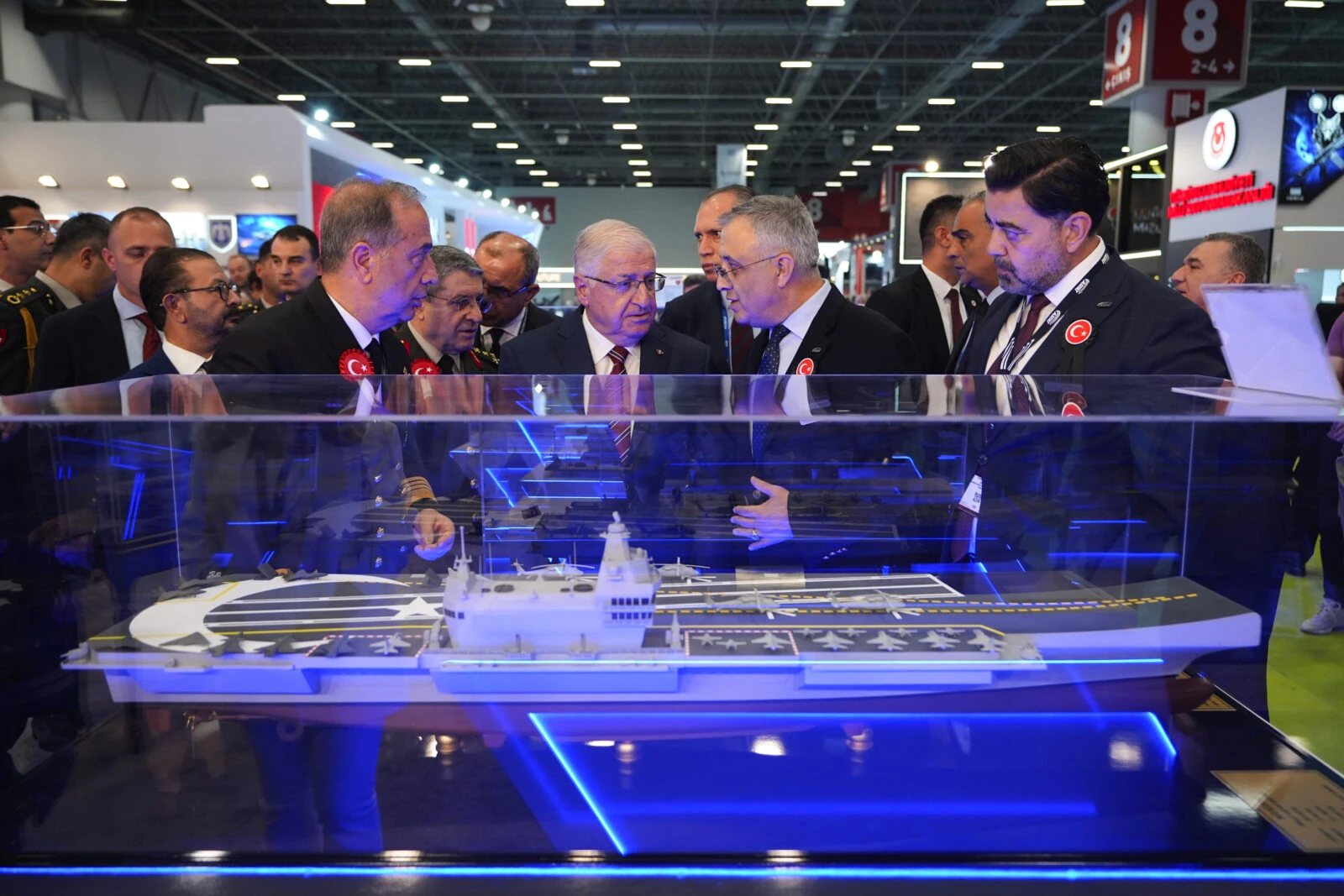
Growing international orders
Türkiye’s shipbuilding industry has become a significant player in global defense exports, constructing vessels for countries including Qatar, Pakistan, Ukraine and Iraq.
Recent contracts with Saudi Arabia, Malaysia, and Portugal highlight its expanding client base, with the latter marking Ankara’s first NATO and EU customer.
The country also secured its first export deal for an unmanned surface vehicle (USV) in 2024 with Qatar. According to intelligence firm Janes, the global USV market is projected to reach $7.8 billion by 2032, positioning Türkiye as a key player in this segment.



